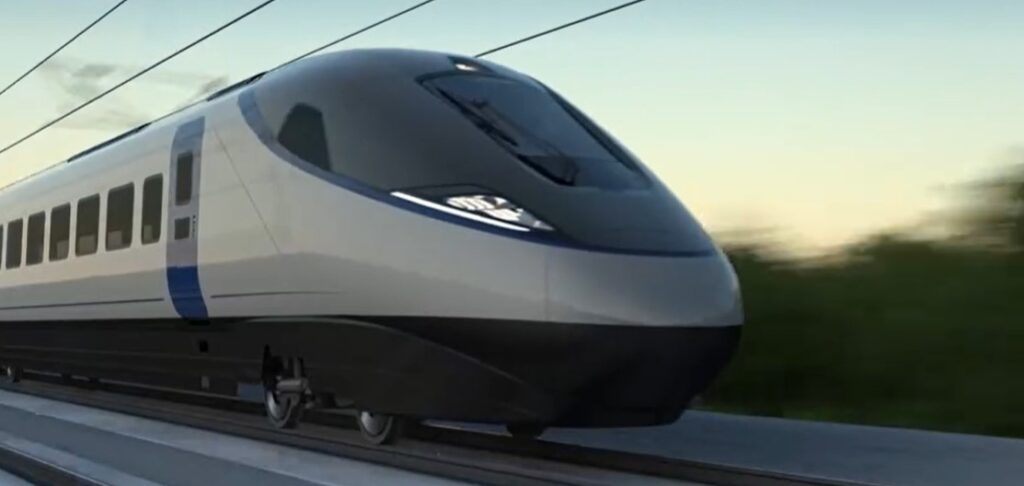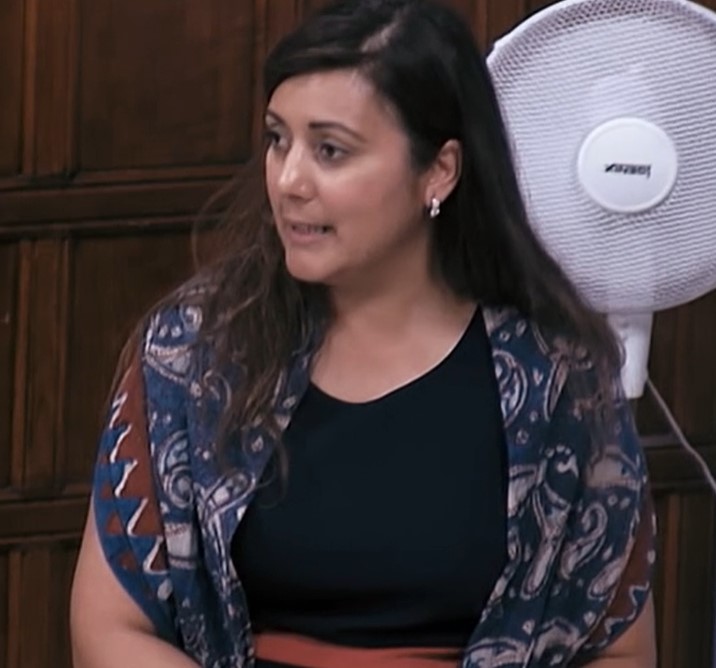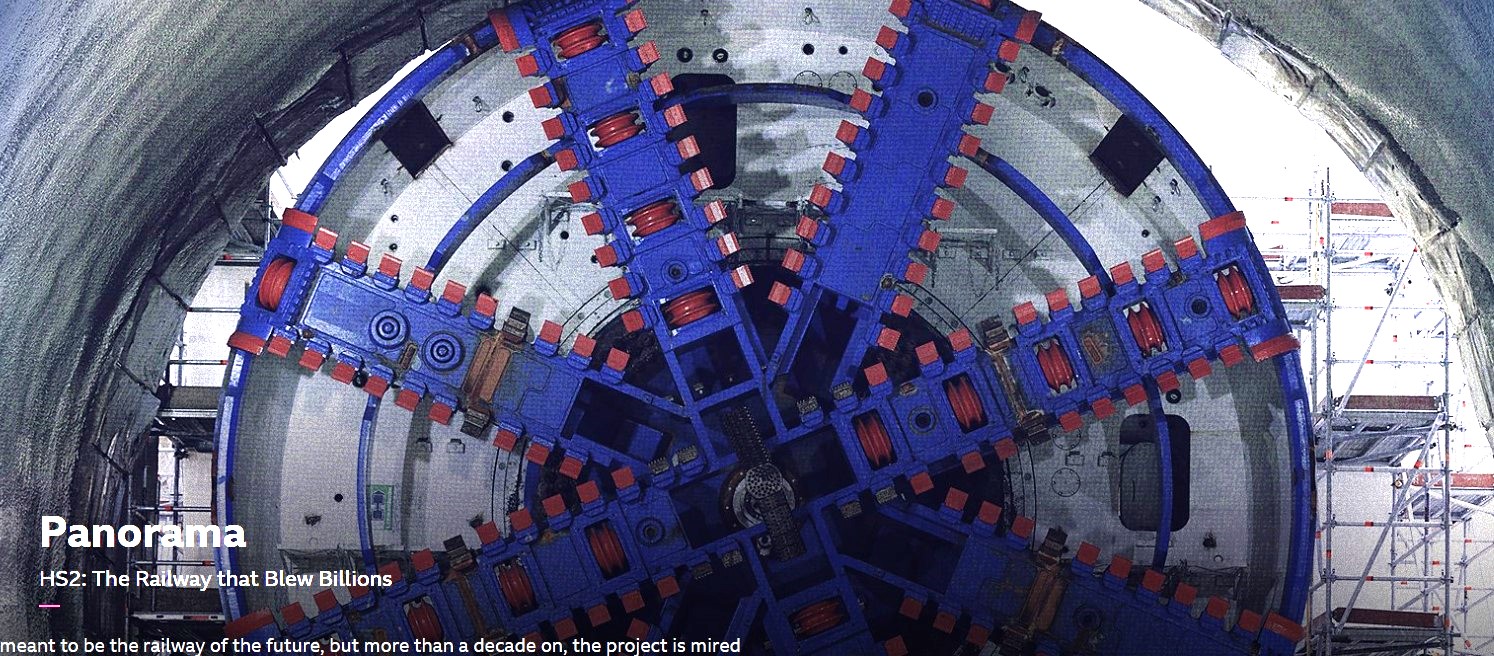TV review by Mark Langabeer, Hastings and Rye Labour member
This week’s Panorama programme investigated the reasons behind the ballooning costs of HS2, the high-speed rail link between London and Birmingham. The original plan also included lines to Manchester and Leeds, but both of those links have now been ditched.
Panoram’s Richard Bilton interviewed two former employees who were responsible for buying land and properties necessary for the rail link. The budget for this, it was first reported, was £2.8bn. However, when they separately both told the board of directors that the real costs would be nearer £4.8bn, they were immediately sacked on spurious grounds about their ‘probationary’ period.
The cost of building HS2 was originally forecast to be £32bn, but very soon this had to be revised. By 2015, it had already risen to over £55bn. There are questions about why HS2 was deemed to be necessary in the first place.
One former British Rail manager told the programme that forecasts suggested that trains would run at full capacity in the not to distant future. High speed trains had already been introduced in France, Germany and Spain, the first of these, running at speeds of up to 237 mph.
HS2 launched by Labour, continued by Tories
The Blair Labour Government appointed Andrew Adonis, a rail enthusiast, as Transport Minister and he launched the project. When the Tory coalition Government was elected in 2010, it decided to continue with HS2.
However, from the start, HS2 was controversial. There were campaigns against it by people whose lives were affected, through areas where it was planned to run. Bolton interviewed a farmer who even had his land split in half by building work for HS2 and the overall effect was extremely costly to his farm business.
The justification for the line in the first place was that the travelling time between London Euston and Birmingham would be reduced from 75 to 49 minutes. However, there were always problems with the routing. For HS2 to function, the track needs to be straight and reasonably flat, so the trains could achieve high speeds.
The Chilterns, through which the chosen route would run, is regarded as a place of great natural beauty, so it was decided that tunnels would have to be cut underneath the downs. One contributor to the programme noted that this alone would put a “ball and chain” around any attempt to stick to the original budget.
The managers of HS2 were always driven by a fear that the project would be cancelled if costs were seen by politicians to be going up. So there were clear attempts to conceal the true costs by both the HS2 executives and the Tory Goverment.
Finally, in 2018, when a new chair of HS2 was appointed, he admitted to the Minister of Transport that costs risen to nearly £80bn, but the same minister then told a Parliamentary committee that the budget was still £55bn. As the (no-longer) chair of HS2 said, this was being ‘conservative with the truth’.
Current plans for HS2 end outside of Central London
Subsequent to this, the project has been scaled down bit by bit in an attempt to rein in costs. The lines to Leeds and Manchester are now scrapped. What is even more ludicrous is that under current plans HS2 ends outside North London at Old Oak Common.

The final connection to Euston – if there is one – has still to be decided. If HS2 only goes to Old Oak Common, then the whole point of shortening the travelling time from Birmingham to Central London is lost.
Richard Bilton spoke to one of Boris Johnson’s advisors, noting that Johnson was always a fan of ‘big’ projects like HS2. Johnson was worried that scrapping HS2 might cost him votes, especially in the north, but this adviser was not himself a fan of HS2, pointing out that unlike France and Spain, for example, the distances between major cities in Britain was relatively small. For him, HS2 was just a ‘vanity project’ and a colossal waste of resources.
Andy Burnham, the Mayor of Manchester, was interviewed and although he was disappointed that the Manchester to London HS2 link was no longer planned, he did point out that in terms of costs and likely benefits, HS2 has been worst project of its kind.
Some debate in the labour movement over the issue
It is clear that there are divisions over HS2 within the labour movement. I used to be a member of the RMT, a union which backed HS2 because it meant investment in the railways. Some argue that rather than marginally improving travelling time between Birmingham and London, there should be more investment to improve services between cities in the North and cross-Pennine.
What the TV programme didn’t deal with was the private civil engineering sector. What is for us a ‘high speed train’ project is for them a ‘gravy train’ project. Every year the government takes bids from the private sector for £400bn-worth of contracts. For modern capitalism that is the main role of government – to source profits for the private sector, whatever damage it does to the best interests of the population as a whole.
In the civil engineering world, HS2 is the biggest fish and over £16bn in HS2 contracts have already been dished out, the biggest sums to construction giants like Balfour Beatty, Mace, Vinci and Skanska, Costain, McAlpines, Keir, etc. Around a dozen big companies are combined into four big contractors for HS2.
It is common practice to underbid, then hike the costs because of ‘unforeseen’ complications, the most common one being ‘ground conditions’. The New Civil Engineer website reports that since the project started in September 2020, “HS2’s four main contractors have asked for more money or time on the project 3,000 times.”

If the railways and big civil engineering companies were brought into public ownership, re-nationalised in the case of rail, then the whole issue of investment in infrastructure would be different. It wouldn’t be a case of private companies of ripping off the public sector for everything they can get.
A balanced approach could be taken to when, where and how much investment is needed and possible in the best interests of the nation as a whole. A democratic plan, including representatives of workers, government and regions could be undertaken and plans laid in a far less wasteful way. That’s a million miles from what we have today.
[All pictures from the Panorama programme, which is available on BBC i-player, here.]



